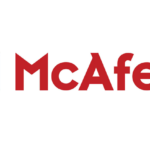Antoine Harb, Team Leader Middle East and North Africa at Kingston Technology explains how to enhance your cybersecurity practices to combat modern cyber threats
A data breach is a serious incident with damaging implications. Cited as one of the top three threats to global stability, a data network intrusion has an average cost of USD 3.86 million. Apart from financial loss, the reputation of the victims, whether individuals or corporations, is also at stake.
With data protection now a baseline requirement for businesses, governments and individuals, having a proactive and strong cybersecurity strategy is fundamental. Furthermore, it is not enough to just deploy cybersecurity measures. It needs to be regularly reviewed and updated to ensure that they are attuned to the latest developments in the global information technology (IT) industry and that they meet evolving organizational requirements. More importantly, your cybersecurity protocols must always be one step ahead of cybercriminals, hackers and other threats to successfully protect your network.
Several basic actions can help further enhance your cybersecurity practices. But the first thing to keep in mind is that cybersecurity is a shared responsibility. In an organization, collectively and individually, employees at all levels across departments and divisions have a role to play in the fight against data threats and cyber network attacks.
The checklists below can bolster your overall approaches to cybersecurity and help put in place key standards to ensure that everyone in the organization is on the same page when it comes to an online network and data security and protection.
- Regularly conduct cybersecurity training for employees: Instilling a culture of collective responsibility is the basic foundation of a successful cybersecurity strategy of any corporation. As established earlier, each employee has a responsibility to safeguard and protect confidential information by following the existing cybersecurity rules, which may include avoiding the reuse of passwords and implementing ways to combat phishing tactics and security measure shortcuts. Your training sessions can also be utilized as a platform to update your employees about the latest in your data security policies.
- Rollout encrypted storage and memory technologies: When deploying USBs, solid-state drives (SSDs) or Internet of Things (IoT) devices, it is vital to purchase those that are secure or have hardware encryption. Unencrypted devices result in vulnerabilities with a detrimental impact on the entire organization. Encrypted storage and memory technologies act as threat prevention solutions and can help avoid data hacks in case of lost laptops or USB drives.
In this regard, Kingston Technology has been working with different organizations and corporations to advise them on the advantages of implementing encrypted storage and memory products. Kingston helps build a safer working environment through its collaborations. It assists its customers every step of the way, a reflection of its global ‘Kingston Is With You’ philosophy.
- Back up your data: A secure backup enables you to not lose your data access in case of a hack or an online network compromise. This is a good cybersecurity practice that will save you and your organization from major headaches in the long run.
- Deploy DLP software: Data loss prevention (DLP) software is not only cost-effective, but it also helps limit network access to devices such as USBs.
- Use VPN: A virtual private network (VPN) decreases the risk of a data breach in the event an employee needs to access company data via public Wi-Fi networks. VPN helps broaden the coverage of your data protection by providing security beyond your private network.
The cyber threat landscape is continuously changing, as such, your cybersecurity measures should evolve as well. Collaborating with industry experts such as Kingston for your data storage needs is also the right thing to do to help you configure a flexible, agile and appropriate cybersecurity plan.











